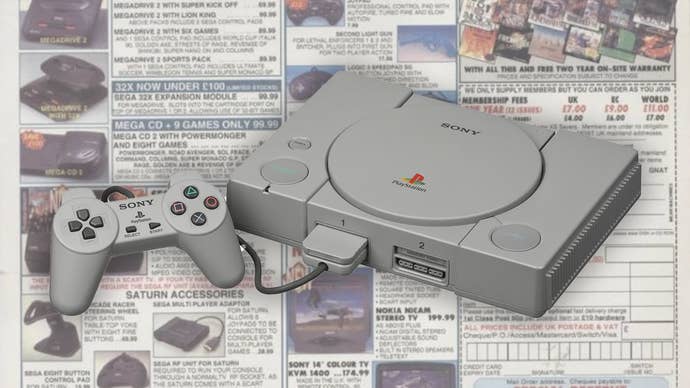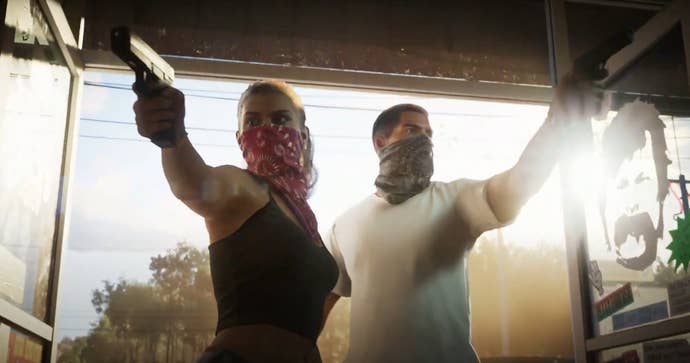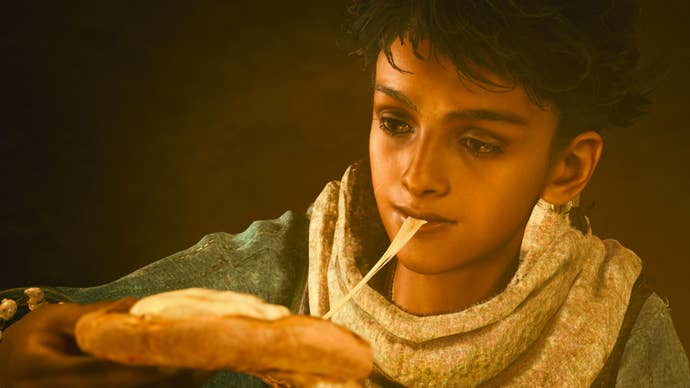I saw someone, somewhere, saying something like this recently: it’s always easier to play the role of doomsayer than the optimist, because far fewer people seem to care if you’re wrong when you’re predicting something will fail.
I’m not sure if that’s entirely true, but in writing this one it is undoubtedly at the back of my mind. This is because I think the video games industry – that is, the established order of massive, western developer-publishers, each making multiple games that cost hundreds of millions and employing developers in the thousands – isn’t just in big trouble, now that GTA 6 has been unsurprisingly delayed to mid-2026. I think it’s finished. The games industry as we know it is dead; it just doesn’t know it yet.
Big statement, so hold your rotten fruit for a minute while I qualify that a bit. The games industry as we know it – have known it – looks like this. Major, publicly traded western publishers such as Ubisoft, EA, 2K and the like would release major, triple-A (or even “quad-A”!) video games on an annual basis. Some of those are annualised franchises, like Call of Duty, 2K sports games, or FIFA/FC, while others are annualised via a kind of perpetually-rotating roster: Assassin’s Creed, Far Cry, Ghost Recon, The Division, etc. Platform holders in Sony, Microsoft and Nintendo would largely do something similar, with a smattering of smaller games in between.
Meanwhile, smaller, more boutique ‘indie’ publishers – your Devolvers, Annapurnas, Keplers, Team17s and the like – would also release a steady stream of medium-sized games. The Japanese development scene would be far and away the largest other contributor to the medium. The indie scene would add thousands of games each year. The mobile games market would siphon billions from commuters’ idle moments. Consoles would get cheaper as generations went on, not more expensive. And every so often a new, zeitgeist-y service game would arrive with varying degrees of dominance, from the trailblazer of WoW to its spiritual kin in League of Legends and Destiny, and then to PUBG, Fortnite, Warzone, Warframe, Minecraft, GTA Online, Apex Legends, Roblox and beyond.
Alongside all of this would typically run a massive secondary ecosystem: dozens of gaming outlets of differing sizes, perspectives and tastes, added to (and, let’s be honest, superseded by) a thronging YouTube scene of people playing, reviewing, theorising, analysing and, yes, promoting the games themselves. And a bustling world of live streaming on Twitch, where esports looked to maybe, finally, be finding some kind of financial footing, and streamers made millions from people spending their free time not only playing games, but filling their spare minutes watching them.

This is no longer what the video games industry looks like. This feels uncomfortable to admit, and I’ve no doubt it will be uncomfortable to read, particularly for those who also work in games themselves, but it bears emphasising again: this is no longer what the video games industry looks like. On almost every level of video games’ great business lattice, the ground has shifted suddenly and in some cases quite dramatically.
The past week has been another brutal reminder. EA has joined in the fun of major layoffs, in obliterating the positions of more than 300 people and cancelling yet another project in the brilliant, dreadfully cursed Titanfall franchise, as well as parking the beloved WRC series at Codemasters. At the same time, Fandom, the wiki farm owner of games media icon Giant Bomb, has seen major staff departures over feckless ownership meddling. And Polygon, which housed many of our friends and peers (including Eurogamer alumni Matt Reynolds and Oli Welsh), has just been sold by Vox and immediately gutted by Valnet, in a scandalous exchange. All of this senseless bloodletting continues, either implicitly or explicitly, in the name of yet more sacrifices upon the great altar of eternal growth.
It’s tempting to label these latest casualties as just another case of this industry’s continuing penchant for idiotic, MBA-fuelled foot-shooting, but there is also more going on here. As former games journalist Alanah Pierce pointed out in a recent, widely shared video, they are happening, yes, because video games have stopped rapidly expanding their audiences and instead become, in investor terms, a “mature” industry.
But also more astutely because of two other reasons: first, that those investors are taking their money to other, more speculative realms such as AI (which adds to the claims we reported that Muse is at least partially a shareholder play for more investment in Xbox). And second, that video games aren’t just capping out their audience because there are no more people in the world to play them, but because those people are now spending extraordinary amounts of time watching short, exceptionally addictive videos on social media.
Much of this search for the causes of video games’ woes can feel almost like old news already – why does the cause still matter? Well in this case, because these are the types of causes which aren’t going away any time soon. Social video, for instance, impacts not only the amount of time people spend playing games, but the time they spend with everything around them too. While TikTok whisks idol thumbs away from Candy Crush, for instance, it also takes eyeballs from Twitch, which laid off 35 percent of its workforce last year (with staff fearing more still to come), and YouTube, where some creators now openly admit they’re turning to culture war grifts as it’s their only means of turning a profit. This is the same pressure being felt everywhere in entertainment, where senior TV producers are forced to take shelf-stacking jobs while viewership and profit tumbles.
The same goes for game production, where those mid-sized developers now talk of a fight for budget, as publishers move from, say, one £10m punt to hedging their risk with 10 separate £1m ones (a million quid is less than you think in development: that’s barely 10 people on £30,000 a year for three years). And again for triple-A games’ ongoing malaise, where the likes of Ubisoft, splitting its business in a scrabble for investment, are already feeling the strain.
The $350m, five-to-seven-year development cycle is no longer seen as viable beyond a handful of exceptions (see: GTA 6), and publishers’ doomed pivots to live service punts has only exacerbated the financial troubles. Saviours, in the forms of various fads – the blockchain! Metaverses! NFTs! – have come and gone, with UGC, or user-generated content, seen as the latest and most viable, still hardly a likely one. Roblox, the leader in that dubious world, continues to make losses in the hundreds of millions. AI, loosely defined, has long been tipped as the next.

All of that brings us to GTA 6, which alongside the Switch 2 has been seen as the last bastion of hope for video games this year. The idea that many (including this writer!) have championed here is that GTA’s assumed mega-popularity would, when it arrived, be a rising tide that lifts all boats for video games, bringing some much-needed public attention back to a medium that has been, perhaps understandably, pushed to one side ever since everyone was let back out in the open after the peak of Covid-19. With GTA 6, the argument goes, video games might just be back on trend again.
The problem is TikTok, the thing which largely decides the trends these days, actually is the trend itself. GTA 6 will be hot, no doubt, but will it be hotter than the place where you can watch infinite videos about GTA 6 in the palm of your hand? And the many other places like this, Instagram and Facebook and Bluesky and YouTube Shorts and X, engineered with such savage efficiency to syphon every second of attention you have to spare?
What it means for Joe Consumer is, at first, not much. There’s a big delay to the real impact of this stuff – developers were warning me about Covid delays to production pipelines as early as February 2020, which we didn’t really start to feel until 2024. There are still a lot of games part-way through production – further along than that poor Titanfall project, for example – where it makes more sense for them to be finished than to be canned. And so for the next couple of years things will, probably, look quite similar to how they look right now, with occasional big releases interspersed with rightsizing and safeguarding the future as the old guard continue to cling on.
But over time this will change. There’ll be fewer triple-A games in the traditional sense, and those that remain will be exceptions, either in the dwindling GTA mold – if GTA 6 took 12 years, how long until GTA 7? Does it change the approach entirely, to something faster like the olden days? Or even arrive at all? – or from platform holders with secondary incentives, or the still independent studios such as Larian, that know their limits and need only turn enough profit to fund the next one. Or, as we’re already seeing, in the form of ever more prevalent remasters and ports of games that seemed to barely come out yesterday.

The pessimist take – and I appreciate this whole thing has felt rather gloomy, so do bear with me – would be that it ends there, that the brain drain of this medium’s extraordinary creative talent is permanent, that developers join TV producers at the supermarket shelves and we simply get fewer of the things we love.
The optimist in me however hopes for something different. The alternative is this: that we see more upstart studios from laid off or disaffected developers, where the stretched funding allows it. That we see more people looking to Larian, or to the smaller-scale likes of Hello Games or Supergiant, or even smaller Santa Ragione or Simogo. That more of the larger developer-publishers begin to finally, slowly, learn their lessons, and look to CD Projekt, or Capcom and Nintendo in Japan. That the global shift in power continues, with more games from South Korea, China and more.
And that the independent scene continues to fight on – not as a saviour, given its inherent instability and tremendous risk, but as a point of inspiration and protest, with games like Blue Prince, Promise Mascot Agency and Despelote just the most recent examples. We’ve seen similar crunches hit music, cinema, and television, after all, and despite the stacked odds against them, the undisputed struggle of its creators and the deeply flawed new status quo for all of three, those modes of entertainment and art aren’t dead, and likely won’t ever be. The industry as we know it might be crumbling, but there will be a new one to replace it. The games industry is dead; long live the games industry, and all that. Whatever form that new industry takes, the very human urge to create and to play will always, always outweigh the things which seek to squash it.






